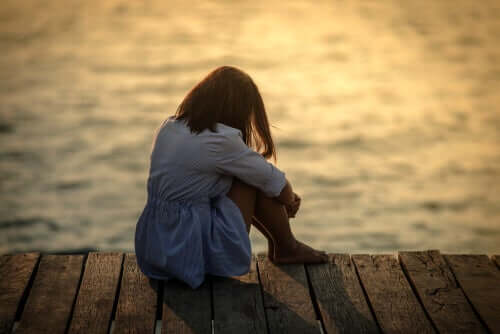Separating from those we love, whether by abandonment, divorce or death, generates suffering, it is an experience that can be lived at any age and in very different circumstances, sometimes this loss leaves a wound that does not heal, then pain becomes a way of life.
No duel passes or is overcome by chance. Of course, time helps, but if it is not performed and a personal account of the event is assumed, it is very likely that we will be tied to an injury that does not heal.
- We can even stop feeling pain.
- At least consciously.
- However.
- This same pain will gravitate into our existence in different ways.
The work of grief has to do with a restructuring of our psychological world, which results in the acceptance of the facts and a transformation of our way of being and living, only if this type of metamorphosis occurs can we recover the intensity of the pain to finally close this wound that does not heal.
“The wounds you don’t see are the deepest. ” – William Shakespeare-
Grief implies, on the one hand, the sadness and desire of what is no longer or will no longer be; on the other, a strong confrontation with ourselves. In bereavement, there is inevitably a tension between the past and the future that is extremely concentrated in the present.
Grief not only refers to a person, but also feels when situations are lost, and even objects are lost, we suffer from lost youth or ruined ideals, also for lost money or for what we never live for.
This pain and suffering occurs in different ways in each person. Much depends on the psychic structure of one and the specific circumstances in which the loss occurred. Over time, some people may accept, while others resist.
Unresolved grief is a wound that doesn’t heal, a pain that stays strong and doesn’t dissipate over time, may be hidden or upside down, but it’s there, as a background of life.
No duel is easy and that means a real problem in an age that rejects the difficult, in many cases this does not happen fast either, a real tragedy in the culture of the snapshot.
For a while, which depends on the loss and intensity of the duel, we will not be able to live “normally”. In other words, sadness and selflessness will prevail. Professional or academic performance can also be affected and it will be difficult to enjoy the company of others. On many occasions this suffering will be all we will have.
Loss is the first moment of grief and is somewhat undestioned, because otherwise it would not cause suffering, the mourning is to lose again what you loved, but this time by your own hands, that is, by the effect of the restructuring work to do with our ideas and feelings. Sometimes we refuse to carry out that process.
There’s pain and grief. They usually last an average of six months to two years, perhaps one of the most difficult is the loss of a child, so much so that there is not a word that refers to such losses, there are orphans and widowers, but there is no term for the father or mother who loses his child.
A wound that does not heal speaks of a work of mourning that is not finished, resistance prevails in the acceptance of what happened, this resistance sometimes manifests itself in cynicism or evasion, in those cases people become hypersensitive to absurdities and not they manage to connect with themselves in an authentic way. They feel like they are living mechanically.
At other times, this repression of bereavement leads to the onset of a disease, we develop a mental disorder or a more serious physical illness, we can also end up becoming bitter and sometimes self-destructive or irresponsible. Any loss that does not result in a positive transformation is suspicious, and this is how it should be considered.

